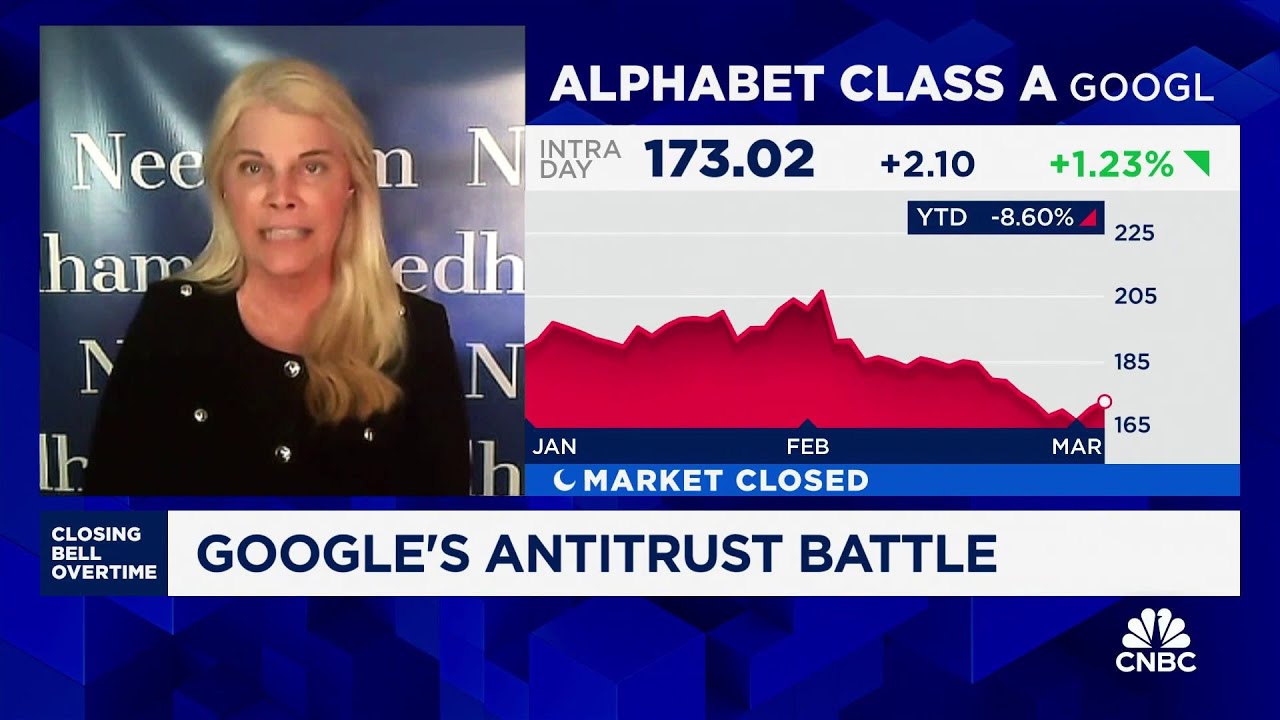In a CNBC segment, Needham’s Laura Martin discussed the challenges facing Big Tech, emphasizing that while companies are investing heavily in generative AI, Apple remains a safer investment due to its strong cash flow and lower capital expenditures. She also highlighted potential risks for ad-driven companies like Alphabet and Meta in the event of a recession, and noted the importance of political relationships in navigating the antitrust landscape.
In a recent segment on CNBC’s “Mad Money,” Needham’s senior entertainment and internet analyst Laura Martin discussed the current state of Big Tech, particularly in light of the ongoing volatility in the market. She noted that while the Nasdaq has shown signs of recovery, tech stocks have struggled since President Trump took office. Martin emphasized that investing in Big Tech requires a clear perspective on the potential returns from significant capital expenditures, particularly as companies ramp up spending on generative AI technologies.
Martin highlighted that major tech companies are projected to spend between $70 to $80 billion on capital expenditures in 2025, with Apple being the exception, as it is not heavily investing in AI. For investors who are skeptical about generative AI, she suggested that Apple could be a safer investment, given its strong cash flow generation and relatively low capital expenditure. She pointed out that Apple is expected to generate $90 billion in free cash flow while maintaining a stable capital expenditure of around $12 billion.
The discussion also touched on the implications of a potential recession, particularly for ad-driven companies like Alphabet and Meta. Martin explained that these companies, which rely heavily on advertising revenue, could face significant challenges if consumer spending declines. Since advertising is closely tied to consumer confidence, a recession could lead to reduced marketing budgets, which would adversely affect the profitability of these tech giants.
Martin expressed that while the consensus on Wall Street is that generative AI will play a transformative role in the global economy, the key uncertainty lies in the timing of revenue generation. As companies invest heavily in infrastructure to support AI development, the question remains as to how quickly these investments will translate into revenue. She underscored the importance of these investments in creating competitive advantages for companies that can afford to leverage their existing mature businesses.
Lastly, the conversation shifted to the antitrust landscape and the relationship between Big Tech and the Trump administration. Martin suggested that personal relationships with key political figures could influence the M&A environment for these companies. She noted that fostering positive relationships, such as through gestures of goodwill, could lead to more favorable outcomes for tech companies seeking to navigate regulatory challenges and pursue growth opportunities.
